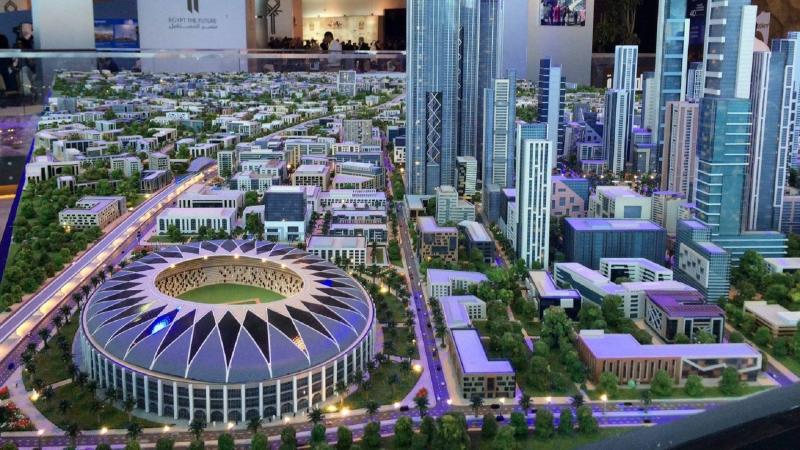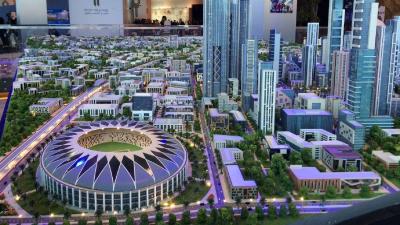The head of the company overseeing the implementation of the New Administrative Capital project has confirmed that Egypt is preparing to spend billions of dollars to double the size of the luxurious city being built in the desert, located 45 kilometers east of Cairo, in conjunction with the arrival of the first wave of residents. The Administrative Capital project is the largest among a series of giant projects that President Abdel Fattah El-Sisi has emphasized are essential for economic development and their role in accommodating the rapid population growth in a country that currently has about 105 million people. Critics, however, argue that the project consumes resources and exacerbates debt burdens.
In July, government employees moved to the newly established ministries and offices in the first phase of the new capital, after eight years of construction work. Khaled Abbas, the Chairman and Managing Director of the New Administrative Capital for Urban Development Company, stated to Reuters, "The new capital receives nearly 48,000 employees daily." The city is designed to reflect a technological model for the future of Egypt, distancing itself from the chaos and congestion of Cairo. The government aims to accommodate part of the population growth, which rises by approximately 1.6% annually, in the city.
Despite the slowdown in construction recently, the first phase of the new city includes a 70-story tower, the tallest in Africa, an opera house with five halls, a massive mosque, and a cathedral that is the largest in the Middle East. Abbas mentioned that the light rail line connecting the administrative capital to East Cairo started operations last spring, and the monorail line across the Nile is set to be operational by the second quarter of 2024.
Abbas added that the company has implemented up to 100,000 housing units and received 1,200 families so far. Major banks and companies are expected to transfer their headquarters during the first quarter of this year. The company is preparing to appoint a consultant to develop the master plan for the second, third, and fourth phases of the city. The population of the first two phases is expected to reach 1.5 million, with each phase covering an area of 40,000 acres (168 square kilometers). Construction work on the second phase is scheduled to start later this year and finish by 2027.
Abbas stated to Reuters, "We have significant demand currently. Therefore, we will immediately begin work on the second phase. If demand continues, we will start work on the third phase within a year or so." Coordination of gardens in a 10-kilometer irrigated park called "the Green River" has already begun. A water station near the Maadi district of Cairo is expected to begin supplying about 800,000 cubic meters of Nile water per day within two years, with another plant capable of 700,000 cubic meters planned. Together, the two plants will consume about one percent of Egypt's share of Nile water.
Abbas expressed hope to inaugurate a massive sports area called the International Sports City for the Olympic Games by the second quarter of the year, which will include a sports stadium accommodating around 93,000 spectators. He revealed that the company, owned 51% by the military and 49% by the Ministry of Housing, has spent 500 billion Egyptian pounds on infrastructure and buildings in the first phase. The mentioned expenditure is equivalent to approximately $16 billion at the current official exchange rate or about $32 billion before Egypt began a series of currency devaluations in March 2022. Abbas stated that the infrastructure for the second phase will cost an additional 250 to 300 billion Egyptian pounds.
In 2019, the former chairman of the Administrative Capital estimated the cost of the new capital to be around $58 billion. The Egyptian economy is under pressure due to currency exchange issues, declining remittances from Egyptians working abroad, and rising costs of servicing external debt. To help alleviate the cost burden, Abbas stated that the company aims to raise between 150 to 200 billion Egyptian pounds by offering five to ten percent of its shares on the Egyptian stock exchange by the end of 2024. He added, "We will be ready to make a decision about the offering within six months."




